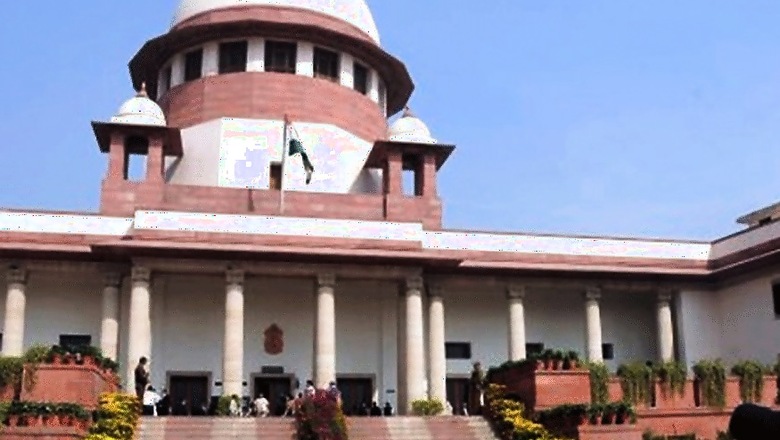
views
New Delhi: The Supreme Court on Thursday ruled that the Lieutenant Governor of Delhi has primacy over the state government under the constitution.
While stressing it was a preliminary observation, the five-judge constitution bench of the apex court said that the entire scheme of the democratic governance of Delhi was tilted in favour of L-G.
The court's view has come as a blow to the Aam Aadmi Party-led Delhi government which had several run-ins with the L-G over several issues.
The bench of Chief Justice Dipak Misra, Justice AK Sikri, Justice AM Khanwilkar, Justice DY Chandrachud and Justice Ashok Bhushan also indicated that it may fix a time frame within which the L-G should dispose of the files sent to him by the state government, IANS reported.
The SC also observed that in case the L-G delays in clearing files, he has to give reasons for his action.
The day-long hearing saw judges questioning senior counsel Gopal Subramanium, appearing for the state government, who argued that the L-G was exercising his powers in a manner to stultify the functioning of a democratically-elected government.
What emerged during the hearing was that Delhi government can't look at in the area of law and order, police and land. In the area where it can enact law, the L-G can exercise his veto and citing differences, refer the matter to the President for decision. There were also some grey areas where the Delhi government had no footprints.
Not agreeing to the argument that Council of Ministers can aid and advise the L-G on every issue, Chief Justice Misra said that it can only do on which legislature (Delhi Assembly) can enact laws, IANS reported.
Justice Chandrachud said that the President exercises his administrative control over Union Territory through Lt Governor, and if there are specific instances of excesses, then the court can address them.
Justice Bhushan too asked Subramanium to be specific and cite instances of L-G standing in the way of Delhi government.
Subramanium cited the instances of L-G holding meeting with the officials without the presence of Ministers concerned and issuing instructions. He also said that the L-G is sitting over the files sent by the Council of Ministers and in some cases, for over a year, citing the instance the matter where the Delhi government had decided to increase minimum wages from Rs 9,000 to Rs 15,000.
As Subramanium sought to blame the L-G for creating hurdles in the functioning of Delhi government, Justice Chandrachud said that every government has to function within the parameters of the constitution and the Article 239AA defines the powers of Delhi government and Union Territory.
He also said that there are areas where L-G enjoys delegated powers and he alone is administrator in respect of them. In other areas he would act on the aid and advise of the Council of Minister but in the event of difference he would refer the matter to President.
The bench also pointed to the financial relationship between the Central government and the Union Territory of Delhi that was distinct from the relationship that it has with other states, saying that Centre has more involvement in the financial affairs of Delhi.
Sensing where the bench was driving at, Subramanium said that the Delhi government too was raising its resources.
The constitution bench is hearing Delhi government's appeal challenging the Delhi High Court verdict holding that the Lt. Governor had the primacy over the elected government in administration of the national capital.
The matter was referred to the constitution bench by the bench of Justice Sikri and Justice RK Agrawal on February 15.
While not framing the questions to be adjudicated by the Constitution Bench, the court had then asked both the Union government and the Arvind Kejriwal government to argue their respective cases before the larger bench.
The hearing by the two judge bench on Delhi government's appeals had seen the court favouring a balance in the exercise of powers by the Delhi government and the Lt. Governor for good governance.
Delhi was given an assembly and an elected government through Article 239 (AA) incorporated in the Constitution by the 69th amendment in 1991.
Hearing will continue on November 7.
(With IANS inputs)



















Comments
0 comment